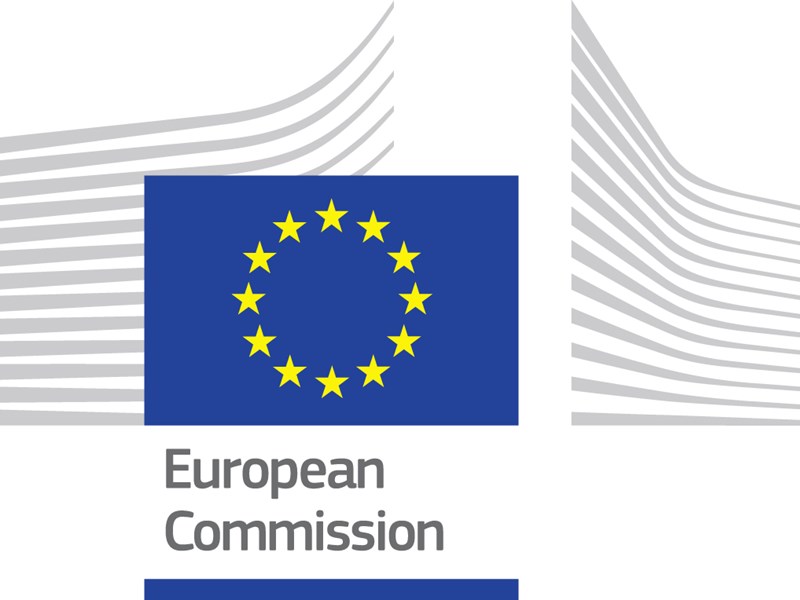2023

Treasury Issues Rules on ‘Killer B’ Triangular Reorganizations
The Treasury Department and the IRS proposed regulations aimed at reining in “Killer B” triangular reorganizations involving foreign corporations, which the government says companies have used in the past to avoid taxes.

Irish Corporate Tax Receipts Drop, Portending Growth Slowdown
Irish corporate tax receipts have dropped two months in a row, with third-quarter revenues falling €700 million short of projections as researchers predict a slowing corporate tax take in line with modest economic growth.

Countries Agree on Tool to Implement Global Tax Pact Rules
The OECD announced Tuesday that countries involved in the global tax deal negotiations have agreed on a multilateral convention to implement a rule aimed at helping developing countries collect more tax under treaties that set low withholding rates.

Dutch Authorities Staffing Up for Global Tax Push, Minister Says
A top Dutch tax official said the Netherlands is preparing for the global minimum tax rollout and will support developing countries in international tax policymaking at the United Nations following talks with US tax officials.

Position of the European Union and its Member States for the 79th session of the UN General Assembly
The EU said the negotiations “do not reflect our key points of concern,” and priorities like “consensus-based decision-making” and the inclusion of “taxpayers’ rights and safeguards” were not being addressed, according to this statement dated September 27 and made public on Oct 10.

Singapore Aiming for Pillar 2 Domestic Top-Up Tax Safe Harbor
Singapore will strive to implement a qualified domestic minimum top-up tax safe harbor to make tax compliance as easy as possible for companies affected by pillar 2 rules, according to a top government finance official.

Limits in US-Taiwan Tax Relief Bill Differ From a Typical Treaty
The United States-Taiwan Expedited Double-Tax Relief Act, which is advancing to the full Senate, would provide an array of tax benefits on certain income earned by qualified residents of Taiwan from US investments or activities.

U.K. Updates Draft Pillar 2 Amendments With Safe Harbors
The United Kingdom has published more draft measures revising its pillar 2 legislation to reflect safe harbors and other features of the OECD’s latest administrative guidance for the global anti-base-erosion rules.

Hungary Makes Moves Toward Global Minimum Tax Adoption
Hungary’s finance minister has started talks with large Hungarian companies about ensuring the country remains competitive as it prepares draft legislation in the fall for transposing the EU’s global minimum tax directive into domestic law.

Deputy U.S. Trade Rep Presses Canada on Digital Tax Plan
The Office of the U.S. Trade Representative has again pushed back against Canada’s plans to introduce a digital services tax, days after American lawmakers warned that the tax, if imposed, might damage Canada-U.S. trade relations.

Global Carbon Pricing Challenge Gains New Members at U.N. Summit
Government officials from Norway and Denmark announced that their countries are joining the Canadian-led global carbon pricing challenge and emphasized the importance of international cooperation on carbon taxes to effectively reduce emissions.

U.S. Issues Final Rules to Keep Chip Funds Out of China
The Biden administration on September 22 issued final rules that would prohibit chip companies vying for a new infusion of federal cash from carrying out certain business expansions, partnerships and research in China, in what it described as an effort to protect United States national security.

Plowgian to U.N.: Don't Torpedo Global Tax Deal
A senior Treasury official has cautioned against efforts by the U.N. to pursue a separate multinational tax agreement, arguing that it would fundamentally undermine the progress made by the OECD’s inclusive framework.

World Leaders Call on UN to Start Developing Global Tax Norms
Several world leaders at a United Nations high-level panel said that the OECD is not the preferred organization to lead the international tax cooperation agenda, but existing work should not be duplicated.

Gentiloni Warns Against the Search for Pillar 2 Loopholes
EU Tax Commissioner Paolo Gentiloni told members of the European Parliament that the EU will have to work hard to avoid a situation in which private actors or jurisdictions find loopholes in pillar 2 of the OECD's global tax plan.

W&M Republicans Push for Pillar 2 Slowdown While Promoting GILTI
House Republican taxwriters are hoping other countries will delay implementation of pillar 2 of the OECD global tax deal while they separately encourage leaders to implement versions of the United States’ global intangible low-taxed income regime.

House Lawmakers Seek Pressure Against Canada’s Digital Tax Plans
A bipartisan group of House Ways and Means Committee members called on the Treasury, the US Trade Representative, and the Organization for Economic Cooperation and Development to push back on Canada’s decision to impose a digital services tax.

Slow EU Pillar 2 Adoption Is a Challenge, Says EU Official
Although some EU member states have started transposing the EU’s global minimum tax directive into their domestic law, others aren’t acting as quickly, and time is running out, according to a European Commission official.

The Biggest Casualty of Pillar 2's Bias for State Subsidies? The U.S.
Stephen A. Bonovich considers the inexplicable and unexplained decision to design pillar 2 to attack various forms of tax rate competition but ignore state subsidies, even though tax academicians, officials, and practitioners have long concluded that such a design is highly irrational and gives rise to market distortions — the exact opposite of what pillar 2 seeks to achieve. He also looks at the practical implications of ignoring those views for the United States, the EU, and China.

Global Minimum Levy Won’t Stop EU Tax Competition, Report Says
Introduction of the 15% global minimum tax will lead jurisdictions to seek new ways of offering tax breaks to attract companies, according to a report on launch of the tax in the European Union.

Multinationals Report Large Tax Benefits From Transfers of IP to Switzerland
Martin A. Sullivan uses data from Form 10-K reports to illustrate some policy shortcomings of recent tax reform efforts, focusing on intellectual property transfers and Switzerland’s status as a tax haven.

Senate Committee Backs Bill to Deepen U.S. Economic Ties With Taiwan
The Senate Finance Committee on September 14 passed a bill that would deepen economic ties between the United States and Taiwan and effectively create a tax treaty that is expected to pave the way for more Taiwanese investment in the American semiconductor industry.

G-20 Leaders Call for Finalizing Pillar 1 Tax Treaty, Amount B
Countries should work quickly on pillar 1 of the OECD’s two-pillar tax reform plan, including unblocking progress on the amount A multilateral convention and completing amount B transfer pricing simplification rules, G-20 leaders said.

U.S. Trade Group Pans Canada's DST for Undermining OECD Process
Canada's digital services tax legislation could weaken the two-pillar plan to modernize corporate tax rules from the OECD/G-20 inclusive framework on base erosion and profit shifting, according to a U.S. trade group.

Tech Groups Urge Canada to Drop DST and Refocus on OECD Tax Deal
The Canadian government should withdraw its plans for a digital services tax to avoid creating “perverse incentives” for countries to undermine a major OECD global tax reform agreement, tech companies said.

European Commission Draws Lessons From Past Failures With BEFIT
The European Commission says it used “valuable insights gained from many years of negotiations” on corporate tax proposals — including those that failed — to design its much-awaited proposal for a common corporate tax framework.

Global Minimum Tax to Reduce Low-Taxed Profit by 70%, OECD Says
In a tax report delivered to the G20 Friday, the Organization for Economic Cooperation and Development said that the 15% global minimum tax is expected to rake in $200 billion annually, and that by 2025 more than 90% of multinational corporations making over 750 million euros ($803 million) will be subject to it.

African Countries Seek to Craft Tax System for Whole Continent
African countries are partnering with three donors to develop a digital tax system for the continent’s governments to own following years of costly, piecemeal updates to their tax administration tools.

New Corporate Minimum Tax Ushers In Confusion and a Lobbying Blitz
The new corporate minimum tax has become a challenge for the Biden administration, which has faced intense lobbying from industries that could be on the hook for billions of dollars in new taxes. Those groups have been flooding the Treasury Department with letters asking for lenient interpretations of the law and trying to create new loopholes before their tax bills come due next year.

Tax Pros Fear High Court Will Go Too Far in Transition-Tax Case
Tax practitioners are getting increasingly anxious about a major foreign income tax case before the Supreme Court that they fear could tear down wide swaths of the tax code, as a deadline approaches for parties to weigh in.


































